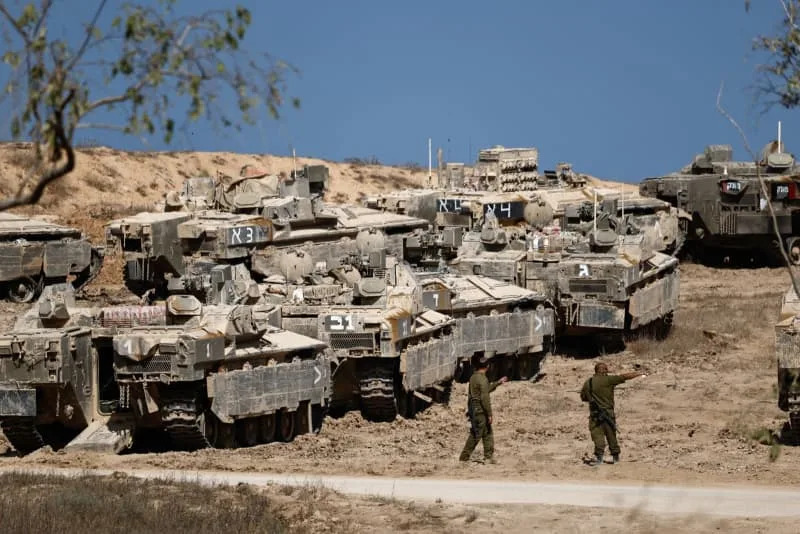The Israel Defense Forces (IDF) confirmed on Sunday, March 10, 2024, that it conducted airstrikes in Rafah following a violation of the ceasefire by the Palestinian militant group Hamas. The incident occurred earlier in the day when Hamas reportedly fired an anti-tank missile at Israeli military engineering vehicles operating in the area, prompting a swift military response from Israel.
In light of the escalating situation, Israeli Prime Minister Benjamin Netanyahu is scheduled to convene a meeting with Defense Minister Israel Katz and IDF Chief of Staff Lt.-Gen. Eyal Zamir to assess the nature and extent of Israel’s response. The IDF did not immediately confirm the details of the reported missile fire or the subsequent airstrikes.
A senior official from Hamas, Izzat al-Rishq, accused Netanyahu of undermining the ceasefire agreement, suggesting that he is responding to pressures from his right-wing coalition partners. Al-Rishq stated that Hamas remains committed to the agreement, while criticizing Israel for “fabricating flimsy pretexts” to justify military actions. He further claimed that Netanyahu was attempting to “evade and disavow his commitments” to international mediators and supporters.
In a stark contrast to Hamas’s assertions, National Security Minister Itamar Ben-Gvir urged Netanyahu to fully resume military operations in Gaza, stating that the “Nazi terrorist organization must be completely destroyed.” His call to action came shortly after reports of the Israeli strikes in Rafah emerged. Finance Minister Bezalel Smotrich shared a succinct and alarming message on social media, simply posting “War!” on X (formerly Twitter), reflecting the heightened tensions within the Israeli government.
The situation has drawn international attention, particularly from the United States. On Saturday evening, the US State Department issued a warning regarding “credible reports” of an imminent ceasefire violation by Hamas. The department emphasized that any planned attack against Palestinian civilians would constitute a serious breach of the current ceasefire agreement. This warning came amidst ongoing violence, with Hamas reportedly responsible for the deaths of at least 32 individuals since the ceasefire was implemented, targeting members of anti-Hamas clans within the Gaza Strip.
Hamas dismissed the US warning on Sunday, claiming it was aligned with what they described as Israel’s misleading propaganda. The group has consistently maintained its position regarding the terms of the ceasefire, despite the rising tensions and military actions in the region.
As developments continue to unfold, both sides remain entrenched in their positions, with the potential for further escalation looming. The situation in Rafah highlights the fragility of the ceasefire and the complex dynamics at play within the ongoing conflict.
This remains a developing story, with further updates expected as the situation evolves.
